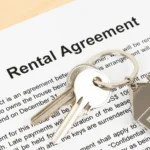Renting a house through a property management company can be a convenient and hassle-free experience. However, it’s important to understand how property management works and what to expect before you sign a lease. This comprehensive guide will provide you with all the information you need to make an informed decision and navigate the process smoothly.
What is a Property Management Company?
In real estate, a property management company acts like a middleman between property owners and tenants. They handle all the tasks of managing a rental property, so owners can enjoy the benefits without the everyday hassles. Basically, they take the stress out of being a landlord. These companies can be big or small, but their main goal is always to effectively manage rentals for the owner.
Property management companies handle a wide range of tasks, including the following:
- Marketing and advertising rental units
- Screening prospective tenants
- Collecting rent
- Handling maintenance requests
- Dealing with tenant issues
- Ensuring legal compliance
By entrusting their properties to a property management company, owners can maximize their return on investment while minimizing the time and effort required. This makes property management an attractive option for both individual landlords and real estate investors.

Benefits of Renting Through a Property Management Company
Renting with a property management company offers a more convenient and efficient experience. They handle everything, from finding the right property to fixing maintenance issues, which is especially helpful for busy people or those new to renting. You also benefit from their professional expertise and resources, ensuring a smooth rental experience. Since they prioritize well-maintained properties, you can expect regular inspections and quick responses to your repair requests. Plus, they act as a clear point of contact between you and the landlord, making communication easier. And for added peace of mind, they often implement security measures like background checks and property inspections.
- Convenience: Property managers handle all aspects of the rental process, from finding a suitable property to addressing maintenance issues. This can be especially beneficial for busy professionals or those new to renting.
- Professional Service: Reputable property management companies have the expertise and resources to ensure a smooth and efficient rental experience. They are well-versed in landlord-tenant laws and can provide guidance and support throughout your tenancy.
- Well-Maintained Properties: Property managers prioritize maintaining the condition of their rental units to attract and retain tenants. They conduct regular inspections and promptly address maintenance requests to ensure tenant satisfaction.
- Efficient Communication: Property managers act as a central point of contact between tenants and landlords. They facilitate clear communication and ensure that both parties are informed and satisfied.
- Increased Security: Property managers implement security measures to protect the property and ensure tenant safety. This may include background checks for tenants, security cameras, and regular property inspections.

Potential Drawbacks of Renting Through a Property Management Company
While renting through a property management company offers convenience and professional service, it’s important to be aware of some potential downsides to make an informed decision:
- Higher Costs: Property management companies charge a fee, usually a percentage of your rent, to cover their services. This can make renting more expensive than dealing directly with a landlord. Be sure to factor this into your budget when comparing rental options.
- Less Personal Interaction: Renting through a company can feel less personal. You might not have direct contact with the owner and may need to go through the company for everything. This can be a drawback for those who value a close relationship with their landlord.
- Stricter Rules: Companies often have stricter rules about things like pets, guests, or changes to the property. These rules are usually in place to protect the property and ensure a consistent experience for all tenants. However, they can be more rigid than dealing with an individual landlord.
- Potential for Miscommunication: With a middleman involved, things can sometimes get lost in translation between you and the property owner. Make sure to communicate clearly, preferably in writing, and document everything to avoid issues.
- Limited Flexibility: Property management companies often have standardized procedures and may have less flexibility to negotiate specific requests or concerns. This can be a disadvantage if you have unique needs or circumstances.
- Corporate Feel: Some renters may prefer the more personal touch of dealing directly with an individual landlord, rather than a larger company. This can be a matter of personal preference.
- Distance from Owner: With a property management company in place, the property owner may be less involved in the day-to-day management of the property. This can be a disadvantage if you value direct access to the owner for resolving issues or discussing concerns.
- Potential for Delays: While property management companies aim for efficiency, there can sometimes be delays in response times due to the volume of properties and tenants they manage. This is something to consider if you value quick responses to your requests.
By weighing these potential drawbacks against the benefits, you can make an informed decision about whether renting through a property management company is the right choice for you.

How to Find a Reputable Property Management Company
Finding a good property management company can make all the difference in your rental experience. Here’s how to find one that’s right for you:
- Ask for Referrals: Talk to friends, family, or coworkers who have rented through property management companies. Personal recommendations can be a great way to find a trustworthy company.
- Read Online Reviews: Check out online reviews on sites like Google, Yelp, and Angie’s List. These reviews can give you insights into other renters’ experiences with different companies. Look for companies with consistently positive reviews and pay attention to any recurring complaints.
- Check with the Better Business Bureau: The Better Business Bureau (BBB) can tell you if a company has any complaints against them. It can also provide information on the company’s history and accreditation status.
- Interview Potential Companies: Don’t be afraid to interview potential property management companies. Ask them about their experience, fees, policies, and how they handle communication with tenants. This will help you get a feel for their professionalism and whether they’re a good fit for you.
- Verify their License and Insurance: Make sure the company is licensed and insured to operate in your state. This protects you and ensures they are operating legally and ethically.
- Look for Specialization: Some property management companies specialize in certain types of properties, such as single-family homes, apartments, or condos. Choose a company that has experience managing the type of property you’re interested in.
- Consider their Technology: Modern property management companies often use technology to streamline communication, rent payments, and maintenance requests. Ask about their online portals and other tech tools to see if they align with your preferences.
- Check their Communication Style: Pay attention to how responsive and communicative the company is during your initial interactions. This can be a good indicator of how they will handle communication throughout your tenancy.
By taking the time to research and compare different property management companies, you can find a reputable company that meets your needs and provides a positive rental experience.

Understanding the Rental Process
While the specifics might vary slightly from company to company, there’s a general flow you can expect when renting a property managed by a professional company. Understanding this process can help you be prepared and know what to expect at each stage. It’s all about finding the right property, providing necessary information, and ensuring a smooth transition into your new home. Think of it as a roadmap guiding you from your initial search to finally getting the keys. Here’s a breakdown of the typical steps involved:
- Property Search: Browse available rental listings on the company’s website or other rental platforms.
- Application: Complete a rental application form and provide necessary documentation, such as proof of income and identification.
- Screening: The property management company will conduct a background check and credit check to assess your suitability as a tenant.
- Lease Signing: Once approved, you’ll sign a lease agreement outlining the terms and conditions of your tenancy.
- Move-In Inspection: Before moving in, you’ll conduct a move-in inspection with the property manager to document the condition of the property.
Paying Rent and Other Financial Obligations
Paying rent on time is a crucial part of any tenancy. Property management companies understand this and often provide various convenient options to make paying rent as hassle-free as possible. From online portals to traditional methods, you’ll likely have flexibility in how you make your payments. In addition to rent, there might be other financial obligations associated with your lease, so it’s important to understand these upfront. Here are some common ways you can pay rent and other associated costs:
- Online Payments: Many companies provide online portals for convenient rent payments.
- Mail-in Payments: You may be able to mail a check or money order to the company’s office.
- In-Person Payments: Some companies may allow you to pay rent in person at their office.
In addition to rent, you may be responsible for other financial obligations, such as:
- Security Deposit: A refundable deposit to cover potential damages to the property.
- Pet Deposit: A non-refundable or partially refundable deposit if you have pets.
- Utilities: Depending on the lease agreement, you may be responsible for paying utilities like electricity, water, and gas.

Maintenance and Repairs
Property management companies handle maintenance and repair requests on behalf of the property owner. You can typically submit maintenance requests online, by phone, or in writing. The company will then dispatch a qualified technician to address the issue.
It’s important to familiarize yourself with the lease agreement to understand your responsibilities regarding maintenance and repairs. For example, you may be responsible for minor repairs, while the property manager handles major issues like plumbing or electrical problems.
Tenant Responsibilities
As a tenant, you have certain responsibilities to maintain the property and comply with the lease agreement. These may include:
- Keeping the property clean and sanitary.
- Reporting any maintenance issues promptly.
- Not causing any damage to the property.
- Paying rent on time.
- Adhering to the rules and regulations outlined in the lease agreement.
Red Flags to Watch Out For
While most property management companies operate ethically and professionally, it’s essential to be aware of potential red flags that could indicate problems down the line. Just like in any industry, there can be companies that don’t adhere to best practices or prioritize tenant satisfaction. By being vigilant and recognizing these warning signs, you can avoid potential headaches and ensure a smoother rental experience. Here are some red flags to watch out for when considering a property management company:
- Poor Communication: If the company is unresponsive or difficult to reach, it could indicate a lack of professionalism or potential problems down the line.
- Pressure to Sign: Avoid companies that pressure you to sign a lease before you’ve had a chance to thoroughly review it and ask questions.
- Unclear Fees: Make sure all fees and charges are clearly explained and documented in the lease agreement.
- Negative Reviews: A significant number of negative reviews online could signal problems with the company’s service or management practices.
- Requesting Rent Payment in Cash: Be cautious of companies that only accept cash payments, as this could indicate a lack of transparency or potential accounting issues.

FAQs about Renting Through a Property Management Company
- What are typical property management fees? Property management fees vary depending on the company and the services offered. They typically range from 5% to 10% of the monthly rent.
- Can I negotiate the lease terms with a property management company? While some lease terms may be negotiable, others may be standard for all tenants. It’s always worth asking if there’s any flexibility in the terms that are important to you.
- What happens if I have a dispute with my landlord? The property management company will act as a mediator between you and the landlord to try and resolve the dispute. If the issue cannot be resolved amicably, you may need to seek legal advice.
- Can I break my lease if I need to move out early? Breaking a lease can result in financial penalties. Review your lease agreement carefully to understand the terms for early termination. You may be able to negotiate with the property management company or find a suitable replacement tenant to avoid penalties.
- What are my rights as a tenant? Tenant rights vary by state and are governed by landlord-tenant laws. Familiarize yourself with your local laws to understand your rights and responsibilities as a tenant. You can find information on tenant rights from resources like the Department of Housing and Urban Development or your state’s Attorney General’s office.

Renting a house through a property management company can be a positive experience if you understand the process and choose a reputable company. By being informed and proactive, you can ensure a smooth and enjoyable tenancy.
Remember: Always read the lease agreement carefully, ask questions, and communicate clearly with the property management company throughout your tenancy.
Ready to experience a hassle-free rental experience?
Partner with Avenue Residential Leasing & Management and let us take care of all your property management needs. Our experienced team will handle everything from finding tenants to managing maintenance, ensuring a smooth and stress-free rental journey.
Contact us today for a free consultation and discover the benefits of partnering with Avenue Residential.







